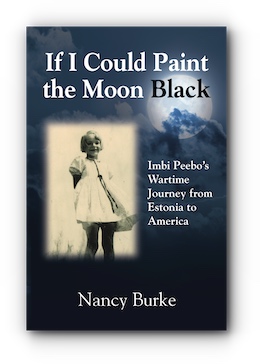| ||||||||||||
| Category: Memoir |
(requires Adobe Reader)
|
| About the Book | |
|
On a morning in June, 1941, cattle cars pulled into the train station in Vaivara, a village in Estonia, and the Soviet army rounded up, not cows, but citizens, and took them east to Siberia. “They take the educated ones,” said a local policeman on that day when Lydia Vahter walked into the woods and into hiding, leaving nine year old Imbi and her grandmother to flee to the family farm in the north. Would Imbi ever see her mother again? Or would the Soviet soldiers find her in the forest? This is the story of Imbi and the members of her family who struggled to survive a brutal time in their country’s history. It is a testament to the resilience of a young girl whose father told her at the age of five, “You are in charge, Imbi. Take care of your mother.” The occupation of Estonia came first from the Soviets, then the Germans. Then the Soviets retook the country in 1945 and maintained control for the next 50 years. Through this upheaval, Imbi minded her father’s words and learned to watch the signals in her war-torn world. The result is this story…a true story as told to the author by Imbi Peebo Truumees who found her way to the United States after a childhood filled with soldiers, night bombings and narrow escapes. Her story represents many hundreds of thousands of refugees from the eastern European countries taken at the end of World War II whose stories should also be told.
|
|
| Reviews | |
“Imbi’s story, written by Nancy Burke in great detail, gives the reader a deeper understanding of the impact World War II and the Soviet and Nazi Germany occupations had on Estonians. The book is a valuable addition to the literature that has appeared since the collapse of the Soviet Union.” Nancy Burke offers a significant contribution to the literature of eye-witness accounts with her beautifully written story of Imbi Peebo Truumees' life as an Estonian child refugee during World War II. Burke writes Imbi's story with great care and suspense that strikes a perfect balance between descriptions of place and event, childhood pleasures and overwhelming fears. The reality of what happened in during the war years can only really be glimpsed through those who lived through it and understood their experiences. Imbi is a brave and perceptive person, and Burke gives her the justice she deserves. A compelling read. It held my interest until the end, wanting more. It should be made into a movie and the book should be entered into the history curriculum of schools, as it is a story of the history of a part of the world that is overlooked in most classrooms today.
|
|
| Related Title | |
|
|
| About the Author | |
 |
Nancy Burke holds a MFA in Creative Writing from Rutgers University, Newark, and a BA in Anthropology from Montclair State University. Her earlier book, From the Abuelas' Window and this are refugee stories. Her short fiction has appeared in print and online and her ten minutes plays have been performed in festival. She has just finished her third book, a novel. She lives, writes, and teaches in Montclair, NJ. |

